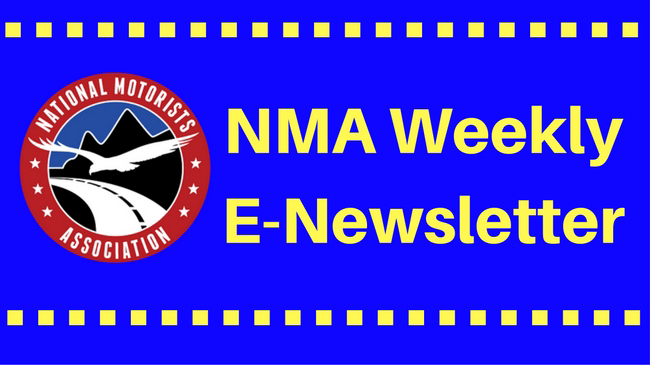Motorists are not cash cows, and it is time elected officials stop treating us as such!
In Washington State, Tim Eyman decided he didn’t think it was fair for everyone in the state to pay for big city transit projects through ever increasing vehicle registration fees (or car tabs, as the locals call them).
Anger with car tab increases stem from passage of Sound Transit 3 in 2016. It is a 25-year, $54 billion expansion which hiked the motor vehicle excise tax from 0.3 percent to 1.1 percent with all monies collected by the regional authority, Puget Sound. Sound Transit 3 also allowed the government to raise the local sales tax and establish a new annual property tax within the transit district boundary.
In 2017, the cost of car registration fees surged and caught many car owners unprepared. Also, Sound Transit used a 1999 depreciation schedule which overvalued newer vehicles, further raising the charges it could collect.
Out of frustration, Eyman and his group, the Permanent Offense team, started a petition drive to put an initiative on the ballot to limit the state’s registration fees to just $30, and base vehicle property taxes on Kelley Blue Book values instead. If the measure was put on the ballot and passed, it would end the practice of using inflated valuations to boost tax revenue. The Initiative would also eliminate the ability of Sound Transit to impose additional taxes on vehicle owners.
Getting an initiative on the ballot is difficult and can sometimes take several years, which was the case for Eyman and Permanent Offense. Local and state officials don’t like ballot initiatives, especially if they cut into their bread and butter. That’s why governments will do nearly anything disqualify petition signatures (Read last week’s newsletter #574: East Liverpool, Ohio Voters win the Day against Red-Light and Speed Cameras.)
Despite all odds, volunteers were successful in getting the initiative on the November 5, 2019, Washington State ballot. Even though the other side spent a great deal of money to defeat Initiative 976, it passed with 55 percent of the vote. (Oddly enough, similar initiatives to cap car tab fees at $30 per vehicle passed in 1999 and again in 2002. The state government kept inching the fees up, which is why public advocates had to take action yet again.) Passage of the initiative also means an immediate $450 million hole in the state transportation budget now exists.
The immediate response by the state and localities involved court cases, broken promises, and a great deal of handwringing.
Lawyers for the city of Seattle, King County, and the Association of Washington Cities successfully argued before a local judge who issued a preliminary injunction to block the measure from taking effect. In December 2019, a divided State Supreme Court upheld the ruling.
Three high-court justices, though, disagreed with the ruling and insisted that the public will should not be ignored. They wrote in their dissent:
“Delaying the effective date of a law enacted by initiative is an extraordinary measure, and it is debatable whether the challengers have shown a likelihood of success on their constitutional challenges to the initiative. While the challengers point to significant losses in revenue and service that could result from a stay and the state highlights the cost of any necessary taxpayer refunds, these monetary injuries are not the only ones that matter. Also important is the potential harm to voters’ confidence in the initiative system and our democratic process as a whole.”
The dissenting opinion noted that, generally, an initiative is presumed valid until it has been proven unconstitutional through the full court process.
Eyman, who is now running for governor, said that he felt that Washington Attorney General Bob Ferguson nominally defended the vote in court. Eyman claims that Ferguson tried to sabotage the case by failing to file for a change of venue to take the case out of King County (which overwhelmingly voted for the measure).
By the end of November, the Washington State Department of Transportation, under the direction of Governor Jay Inslee, released a list of transportation projects that would now be deferred.
State DOT Secretary Roger Millar wrote in a November 26th letter that the purpose of delaying projects that are not yet underway is to provide state lawmakers and the Governor more funding flexibility. The deferred list also included projects funded by the Connecting Washington transportation package of 2015, which was an 11.9 percent gas tax increase. These projects funded by the 2015 gas tax increase did not have any funding from the vehicle registration fees funding, and many question why these projects were put on the list.
Overall, Washington decided to place 90 different transportation projects on hold while the Governor and state lawmakers sort out funding priorities during the 2020 legislative session.
One such project: the North Spokane Corridor (NSC) Project, also called the North-South Freeway, had been promised to voters for decades and was finally funded in 2015. Even though the Connecting Washington funds included other car taxes and fees, the WSDOT confirmed to Washington Policy Center’s Transportation Chief Mariya Frost that the NSC is funded solely by the 2015 gas tax increase—the same gas tax increase that Initiative 976 does not impact.
Curiously, several bike and pedestrian projects still have funding, even though resources for these projects came entirely out of the state’s Multimodal Account. Many alternative transportation and transit projects would have lost much of its funding due to the reduction in car tab fees brought on by Initiative 976.
Now that the State Supreme Court has weighed in on the debate, motorists have no choice but to keep pushing for what they voted for and passed in November.
Eyman has also encouraged Initiative supporters to only pay the $30 car tab fee as set out in the voter-approved law.
When states are allowed to ignore the will of the people, the democratic process breaks down as Washington State has so aptly demonstrated.




